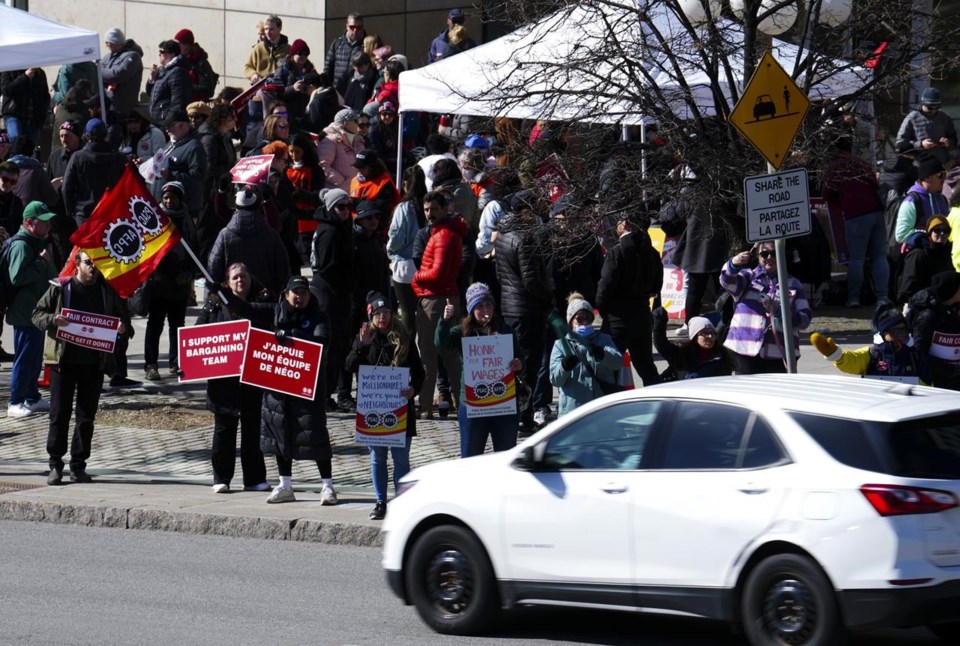OTTAWA — An organization that helps women in the justice system says it is concerned about an ongoing strike by Canada's largest public-service union after one of its advocates was unable to access an Edmonton prison.
Emilie Coyle, executive director of the Canadian Association of Elizabeth Fry Societies, says she is worried about further restrictions at a time when some correctional institutions are already dealing with staffing shortages.
Coyle says Correctional Service of Canada staff are accommodating Elizabeth Fry advocates entering prisons, but a picket line in Edmonton on Thursday prevented one of them from going into the facility.
"There were a large number of people picketing, and so one of our regional advocates was not able to get in," she said.
"She wasn't even able to get close to the doors to talk to someone to say, 'Hey, I'm here to monitor conditions of confinement. I'm not crossing the picket line for any other reason.'"
Coyle said that the wardens of prisons dedicated to women have tried to be accommodating, and the the Public Service Alliance of Canada said such blockades shouldn't happen.
"Essential workers and members of the public who require access to federal buildings shouldn't be prevented from entering," the union said in a statement.
Coyle said Elizabeth Fry supports the right of workers to strike and advocates do not intend on disrupting the picket line, but they do want to enter facilities to ensure that people inside continue to be served properly.
"People who are incarcerated experience removal from society, but when things like a pandemic happens, or a strike happens, people's liberty within the confines of the prison can be restricted even more," she said.
The potential for inmates to have trouble accessing health care, meals and other programming in a timely manner due to the ongoing strike is another concern.
"If people are not able to cross the picket line, in particular, we're concerned about medication, people who are in prison who have children, who are pregnant, who have specific medication needs," Coyle said.
"Are they going to be ensured that their health-care needs are taken care of?"
At the Joliette Institution for Women in Joliette, Que., medication and meals were delayed in a high-security unit as a result of staff shortages, Coyle said.
In a statement Thursday, the Correctional Service of Canada said it has employees who are affected by ongoing labour activities, and there is a fluctuating number of employees as well as protests at multiple sites.
"We have worked to ensure that essential operations are maintained and many employees have been deemed essential to provide them," the statement said.
"The provision of food services and health care to inmates will continue to be prioritized."
The statement said health staff fall under a different union and will continue to provide health care in correctional facilities. It said correctional visits by family, friends and support workers will continue.
"However, we have encouraged visitors to call ahead of their planned visit to ensure there are no disruptions," the correctional service said.
Depending on how long the strike lasts, Coyle said there are concerns that programming could be affected in the same way it was at the height of the COVID-19 pandemic.
"If people are not able to go to their programs, then that has the potential to affect their release," said Coyle.
"People have correctional plans that have requirements for them to complete certain programming before they can go before the parole board, and if this goes on for a long period of time, and it does end up affecting people's programs, then it will be a compounded effect on people's liberty."
The Parole Board of Canada says some of its services, including reviews and record suspensions, could also be affected as a result of the labour action, which includes picket lines at 250 locations across the country.
This report by The Canadian Press was first published April 20, 2023.
David Fraser, The Canadian Press



